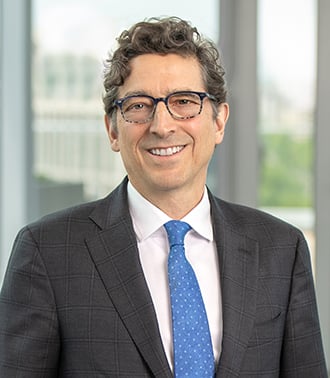The Garland DOJ's Consent Decrees: Return to the Traditional Process
As stated in his April 16, 2021 memo, Attorney General Merrick Garland has returned the Department of Justice to its "traditional process" for approving settlement agreements and consent decrees, which may have a significant impact on the number and scope of agreements to reform systemic civil rights abuses within state and local governmental entities. The memo specifically rescinds a 2018 memo issued by former AG Jeff Sessions. The Sessions memo required approval by senior DOJ leadership and created substantive requirements that limited the potential scope of consent decrees. AG Garland has returned the approval process to the heads of litigating components, who are "most familiar with and best able to assess" the needs of each particular case.
Consent decrees—court-approved agreements reached without litigation—have been used following civil rights investigations into law enforcement agencies and other governmental entities to implement mandated reforms. Because individual liability is insufficient to fix systemic problems, consent decrees can be more efficient and more effective at addressing the institution as a whole. As the nation is experiencing a major public policy push for police reform, AG Garland's change in DOJ policy allows for greater flexibility to enter into consent decrees used to safeguard civil rights.
Historical Background
Pattern-or-practice investigations are civil tools that aim to root out police departments' systemic problems rather than those caused by individual officers or incidents. Through legislation that arose from the aftermath of the Rodney King riots, DOJ is authorized to sue any law enforcement entity that engages in "pattern or practice of conduct . . . that deprives persons of rights, privileges, or immunities secured or protected by the Constitution or laws of the United States." 34 U.S.C. § 12601.
One of the most powerful equitable remedies to come out of a pattern-or-practice investigation is a consent decree between the entity and DOJ, whereby the entity agrees to reform its practices and submit to monitoring by DOJ in lieu of going to trial. DOJ's Civil Rights Division began its first pattern-or-practice investigations in 1996, and the first consent decree, between the Pittsburgh Police Bureau and DOJ, was entered into in April 1997.
Although authorized a decade earlier, pattern-or-practice investigations were not commonplace until the Obama Administration. From 2009-2014, DOJ initiated twice the number of investigations than it did in the last five years of the Bush Administration. Under the Trump Administration, the use of both investigations and consent decrees ebbed. In that Administration's four years, DOJ publicly opened only one pattern-or-practice investigation, publishing its findings in April 2020. Despite a request from Senator Roy Blunt (R-MO) to return to pattern-or-practice investigations, former AG William Barr notably refused to open an investigation into the George Floyd killing in Minneapolis.
Although frequently used in connection to police departments, pattern-or-practice investigations and similar equitable remedies also have been applied to other institutions. For example, in 2013, DOJ entered into a settlement agreement with the University of Montana regarding their Office of Public Safety's response to sexual assault. Earlier, in 2011, DOJ intervened in a lawsuit by Rikers Island inmates complaining of a pattern-or-practice of excessive force and human rights violations and negotiated a consent judgment with the New York City-based jail.
The Garland Memo
AG Garland's memo addresses the contexts in which Congress has authorized DOJ to file lawsuits against state and local governmental entities to obtain legal and equitable relief to remedy violations of federal law. These include ensuring constitutional policing practices, eliminating discriminatory housing practices, guarding voting rights, and redressing sexual harassment and other forms of discrimination in the workplace.
This memo addresses certain general principles regarding DOJ's use of settlement agreements and consent decrees. It also specifically rescinds the Sessions memo, which required such agreements to receive approval by the Deputy AG or the Associate AG. AG Garland has returned the authority to determine the form and substance of civil resolutions to US Attorneys and heads of litigating components, with limited exceptions in keeping with longstanding regulations and practice.
The Garland memo also provides four factors to help guide internal decision-making on whether to settle on a particular resolution: (1) the nature of the underlying violation(s); (2) the nature and scope of the proposed remedies; (3) the government's interest in the form of the resolution; and (4) the nature of the public interest in the violation(s) and remedies.
In addition, the memo notes that DOJ has a significant interest in ensuring that a monitor, if applicable, is independent, highly qualified, and free of conflicts of interest. The memo instructs the Associate AG to review certain DOJ guidance on the selection of monitors in settlement agreements and consent decrees to determine whether further guidance is warranted.
Looking Forward
In light of this history and AG Garland's recent memo, consent decrees and settlement agreements are likely to return in force under the Biden Administration. During his campaign, then-candidate Biden pressed for a revival of pattern-and-practice investigations and consent decrees, and the pending nominations of Vanita Gupta and Kristen Clarke reinforce this prospect. Gupta is an informed veteran of negotiating consent decrees and has called them a "blueprint" for reform for police departments across the country.
Following historic civil unrest in the wake of the killing of George Floyd, there has been a major public policy push for police reform. AG Garland's memo came at the end of the third week of Derek Chauvin's ongoing murder trial and signals a shift in DOJ priorities back to conducting intensive probes of police departments. A change in pattern-or-practice investigations is coming, and we will be watching closely to see what comes next.
© Arnold & Porter Kaye Scholer LLP 2021 All Rights Reserved. This blog post is intended to be a general summary of the law and does not constitute legal advice. You should consult with counsel to determine applicable legal requirements in a specific fact situation.




